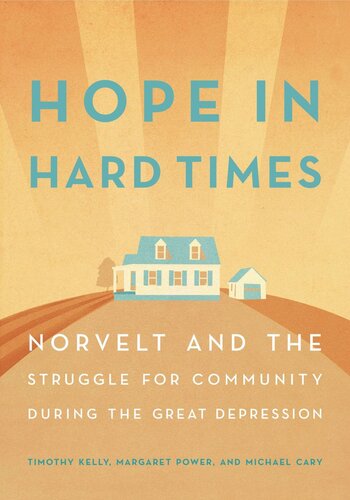

Most ebook files are in PDF format, so you can easily read them using various software such as Foxit Reader or directly on the Google Chrome browser.
Some ebook files are released by publishers in other formats such as .awz, .mobi, .epub, .fb2, etc. You may need to install specific software to read these formats on mobile/PC, such as Calibre.
Please read the tutorial at this link: https://ebookbell.com/faq
We offer FREE conversion to the popular formats you request; however, this may take some time. Therefore, right after payment, please email us, and we will try to provide the service as quickly as possible.
For some exceptional file formats or broken links (if any), please refrain from opening any disputes. Instead, email us first, and we will try to assist within a maximum of 6 hours.
EbookBell Team

4.1
20 reviewsWinner of the 2021 Arthur St. Clair Historic Preservation Award from the Westmoreland Historical Society
Of the many recipients of federal support during the Great Depression, the citizens of Norvelt, Pennsylvania, stand out as model reminders of the vital importance of New Deal programs. Hoping to transform their desperate situation, the 250 families of this western Pennsylvania town worked with the federal government to envision a new kind of community that would raise standards of living through a cooperative lifestyle and enhanced civic engagement. Their efforts won them a nearly mythic status among those familiar with Norvelt’s history.
Hope in Hard Times explores the many transitions faced by those who undertook this experiment. With the aid of the New Deal, these residents, who hailed from the hardworking and underserved class that Jacob Riis had called the “other half” a generation earlier, created a middle-class community that would become an exemplar of the success of such programs. Despite this, many current residents of Norvelt—the children and grandchildren of the first inhabitants—oppose government intervention and support political candidates who advocate scrutinizing and even eliminating public programs.
Authors Timothy Kelly, Margaret Power, and Michael Cary examine this still-unfolding narrative of transformation in one Pennsylvania town, and the struggles and successes of its original residents, against the backdrop of one of the most ambitious federal endeavors in U.S. history.